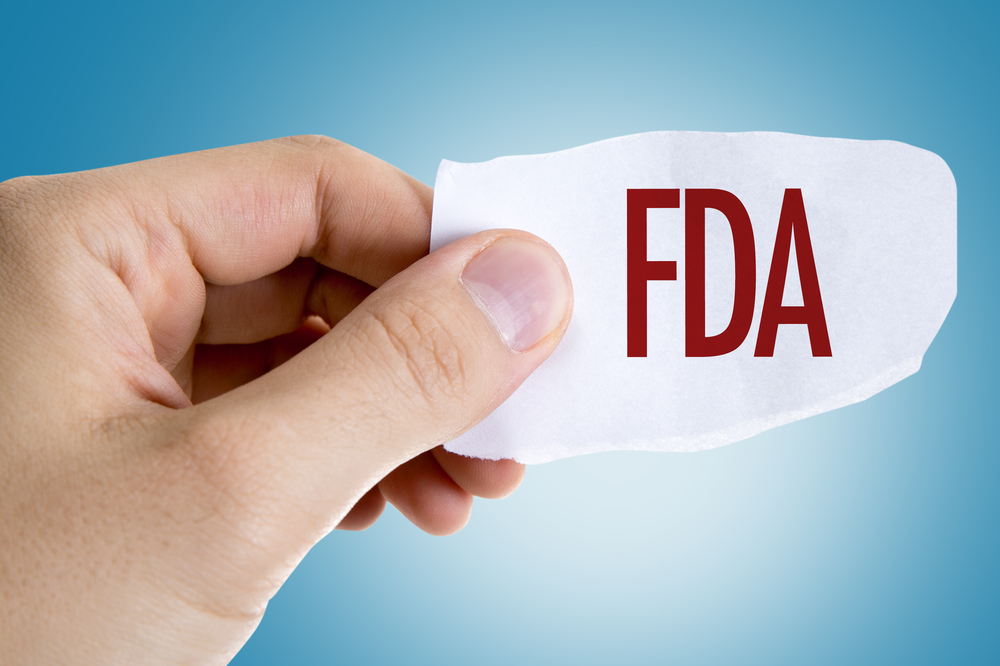
Merck, known as MSD outside the United States and Canada, today announced that the U.S. Food and Drug Administration (FDA) has approved KEYTRUDA (pembrolizumab), the company’s anti-PD-1 (programmed death receptor-1) therapy, for the treatment of adult and pediatric patients with refractory classical Hodgkin lymphoma (cHL), or who have relapsed after three or more prior lines of therapy. Under the FDA’s accelerated approval regulations, this indication is approved based on tumor response rate and durability of response. Continued approval for this indication may be contingent upon verification and description of clinical benefit in the confirmatory trials. In refractory or relapsed cHL, KEYTRUDA is approved for use in adult patients at a fixed dose of 200 mg and in pediatric patients at a dose of 2 mg/kg (up to a maximum of 200 mg). KEYTRUDA is administered intravenously every three weeks until disease progression or unacceptable toxicity, or up to 24 months in patients without disease progression.
Immune-mediated adverse reactions occurred with KEYTRUDA including pneumonitis, colitis, hepatitis, endocrinopathies, and nephritis. Based on the severity of the adverse reaction, KEYTRUDA should be withheld or discontinued and corticosteroids administered when appropriate. Immune-mediated complications, including fatal events, occurred in patients with cHL who underwent allogeneic hematopoietic stem cell transplantation (HSCT) after being treated with KEYTRUDA. Follow patients closely for early evidence of transplant-related complications, and intervene promptly. KEYTRUDA can also cause severe or life-threatening infusion-related reactions. Monitor patients for signs and symptoms of infusion-related reactions; for Grade 3 or 4 reactions, stop infusion and permanently discontinue KEYTRUDA (pembrolizumab). Based on its mechanism of action, KEYTRUDA can cause fetal harm when administered to a pregnant woman. Female patients of reproductive potential should be advised of the potential hazard to a fetus. For more information regarding immune-mediated and infusion-related adverse reactions and use in pregnancy, see “Selected Important Safety Information” below.
The approval is based on data in 210 patients from the KEYNOTE-087 trial, which demonstrated an overall response rate (ORR) with KEYTRUDA (200 mg every three weeks) of 69 percent (95% CI: 62, 75) with a complete remission rate (CRR) of 22 percent and a partial remission rate (PRR) of 47 percent. The median follow-up time was 9.4 months. Among the 145 responding patients, the median duration of response was 11.1 months (range 0.0+ to 11.1 months).
“The results from KEYNOTE-087 showed that most patients with relapsed or refractory classical Hodgkin lymphoma responded to treatment with KEYTRUDA, and 22 percent experienced complete remission,” said Dr. Roger M. Perlmutter, president, Merck Research Laboratories. “Today’s approval – the first for KEYTRUDA in a hematologic malignancy – reinforces the hope that immunotherapy will prove useful in a wide variety of cancers.”
“For the patients with classical Hodgkin lymphoma who are not cured with existing treatments, there are limited options, and treating their disease becomes more challenging,” said Dr. Craig Moskowitz, clinical director, division of hematologic oncology, Memorial Sloan Kettering Cancer Center. “This approval is an important step forward in treating these patients, who are generally young and have a particularly poor prognosis, and gives us the opportunity to help patients in their fight against this devastating disease.”
Data Supporting the Approval
The accelerated FDA approval was based on data in 210 patients with relapsed or refractory cHL enrolled in the multicenter, nonrandomized, open-label KEYNOTE-087 study. Patients with active, non-infectious pneumonitis, an allogeneic HSCT within the past five years (or greater than five years but with symptoms of GVHD [graft-versus-host disease]), active autoimmune disease, a medical condition that required immunosuppression, or an active infection requiring systemic therapy were ineligible for the trial. Patients received KEYTRUDA at a dose of 200 mg every three weeks until unacceptable toxicity or documented disease progression, or for up to 24 months in patients who did not progress. The major efficacy outcome measures (ORR, CRR, and duration of response) were assessed by blinded independent central review according to the 2007 revised International Working Group (IWG) criteria. Fifty-eight percent (58%) of patients were refractory to the last prior therapy, including 35 percent with primary refractory disease and 14 percent whose disease was chemo-refractory to all prior regimens. Additionally, 61 percent of patients had undergone prior auto-HSCT, 17 percent had no prior brentuximab use, and 36 percent had prior radiation therapy.
Efficacy analysis showed an ORR of 69 percent (95% CI: 62, 75) with a CRR of 22 percent and a PRR of 47 percent. The median follow-up time was 9.4 months. Among the 145 responding patients, the median duration of response was 11.1 months (range 0.0+ to 11.1 months).
KEYTRUDA (pembrolizumab) was discontinued due to adverse reactions in five percent of 210 patients with cHL and treatment was interrupted due to adverse reactions in 26 percent of patients. Fifteen percent (15%) of patients had an adverse reaction requiring systemic corticosteroid therapy. Serious adverse reactions occurred in 16 percent of patients. The most frequent serious adverse reactions (≥1%) included pneumonia, pneumonitis, pyrexia, dyspnea, GVHD, and herpes zoster. Two patients died from causes other than disease progression; one from GVHD after subsequent allogeneic HSCT and one from septic shock. The most common adverse reactions (occurring in ≥20% of patients) were fatigue (26%), pyrexia (24%), cough (24%), musculoskeletal pain (21%), diarrhea (20%), and rash (20%).
There is limited experience in pediatric patients. Efficacy for pediatric patients was extrapolated from the results in the adult cHL population. In a study of 40 pediatric patients with advanced melanoma, PD-L1–positive advanced, relapsed, or refractory solid tumors or lymphoma, patients were treated with KEYTRUDA for a median of 43 days (range 1-414 days), with 24 patients (60%) receiving treatment for 42 days or more. The safety profile in pediatric patients was similar to that seen in adults treated with KEYTRUDA. Toxicities that occurred at a higher rate (≥15% difference) in these patients when compared to adults under 65 years of age were fatigue (45%), vomiting (38%), abdominal pain (28%), hypertransaminasemia (28%), and hyponatremia (18%).
Filed Under: Drug Discovery




